Group smuggles pride 'flag' into Russia for the World Cup
6 people wore the shirts of their country's team to recreate the flag
Moscow -- Six people have come up with a creative way of smuggling the Pride flag into Russia during the World Cup as a demonstration against the country's restrictive laws on promoting LGBTQ rights and talking about homosexuality publicly.
Since 2012, Russia has enforced an "anti-gay propaganda" law, forbidding the so-called promotion of homosexuality to people under the age of 18. In practice, this has meant that public demonstrations in support of gay rights are often treated as illegal. Officials also now require that public demonstrations, even involving just one person, have authorization to go forward.
The result is that carrying the rainbow pride flag, which celebrates lesbian, gay, bisexual and transgender communities, could get you arrested in Russia.
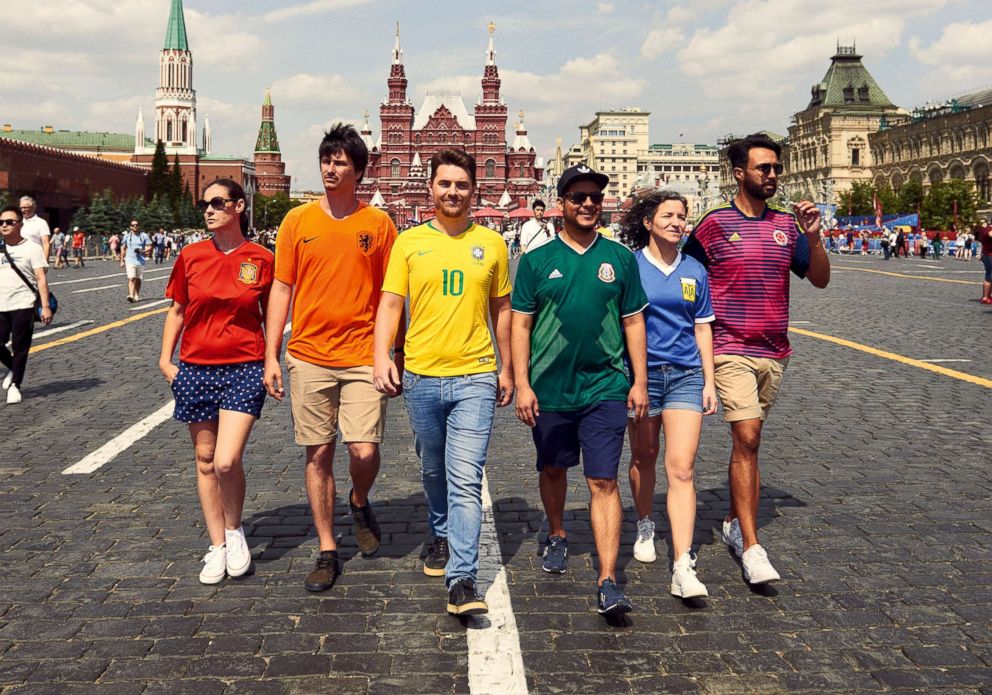
To get around the law, the group decided to enact a subtle protest by wearing the shirts of Spain, the Netherlands (who weren't in the World Cup), Brazil, Mexico, Argentina and Colombia. Taken together, when stood up in a line, the shirts match the the colors of the stripes of the pride flag: red, orange, yellow, green, blue, and violet.
The group has been posting pictures of themselves representing the flag in well-known locations around Moscow under the title, 'The Hidden Flag,' including in Red Square close to the Kremlin, as well as near one of the city's main cathedrals, Church of Christ the Savior.
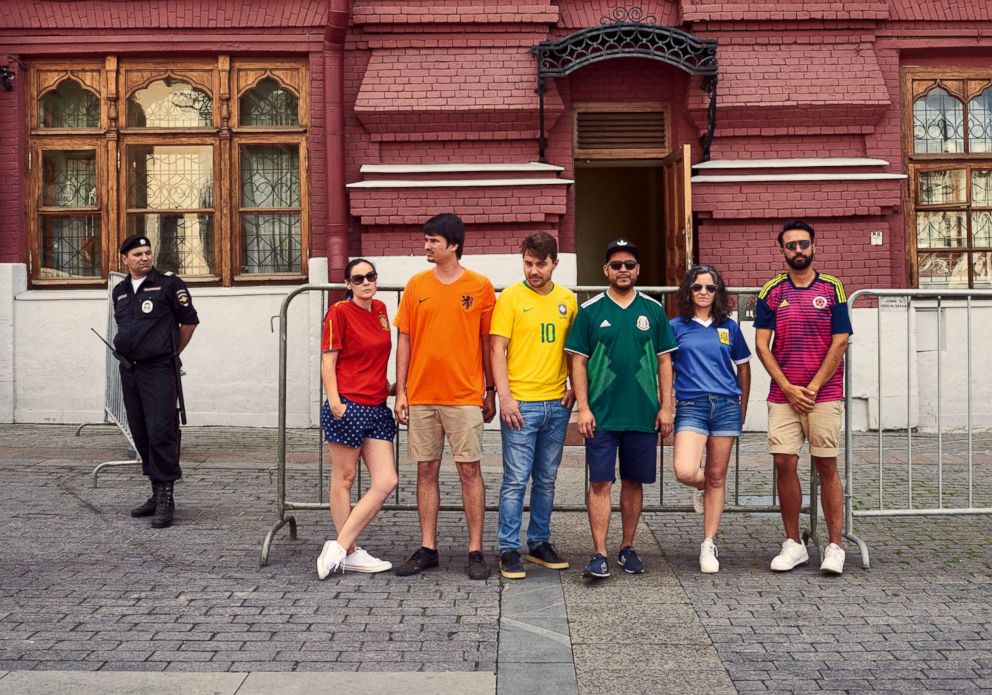
According to the BBC, the activists come from each of the country's represented: Marta Márquez from Spain, Eric Houter from the Netherlands, Eloi Pierozan Junior from Brazil, Guillermo León from Mexico, Vanesa Paola Ferrario from Colombia and Mateo Fernández Gómez from Argentina.
Márquez told the BBC that when they arrived in Russia the group had been worried how they would be received but that they had not encountered any trouble.
"Once we landed in Russia our first steps felt very scary, but little by little we realised that nobody knew what we were doing, so I started to relax, although I stayed alert," she told BBC Newsbeat.
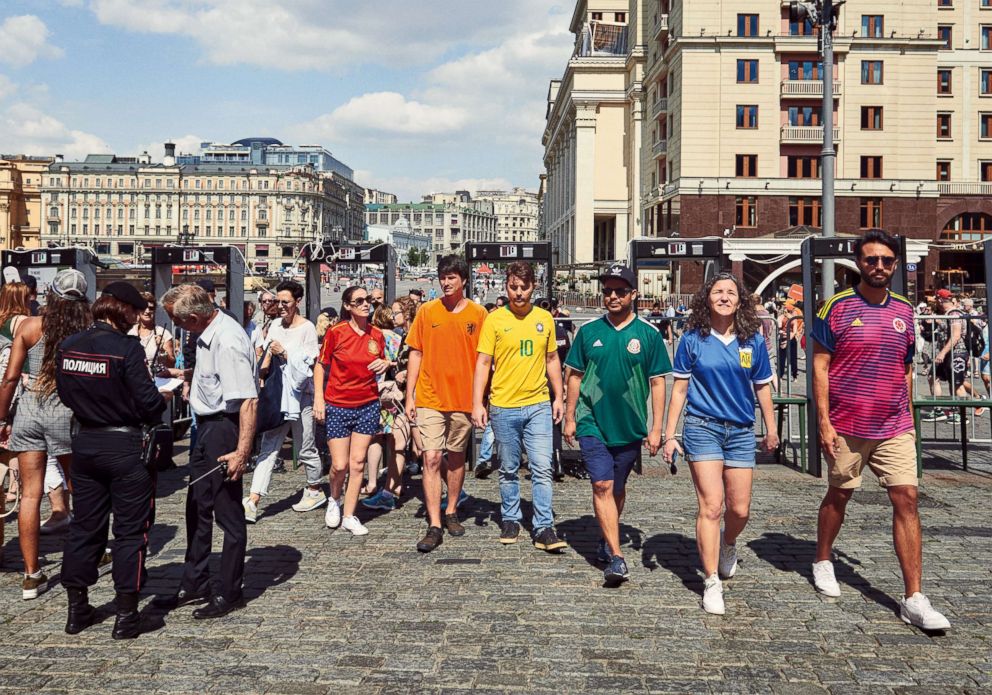
"Over our five day visit there was no sense of real danger, nobody threatened us."
"Most people were very kind to us, especially the tourists who saw us as equals. However, if they had known what we were doing it probably would have been different," Márquez told the BBC.
Homophobic attitudes remain very prevalent in Russia and have been worsening in recent years amid a campaign directed by the government promoting conservative religious values, which has included the passing of the "gay propaganda law". A 2015 survey by the state polling agency VTsIOM found that 80 percent of Russians opposed same-sex marriages, compared to 59 percent in 2005; the same poll found that 20 percent of Russians considered gay people dangerous and should be isolated from society, up from 12 percent in 2005.
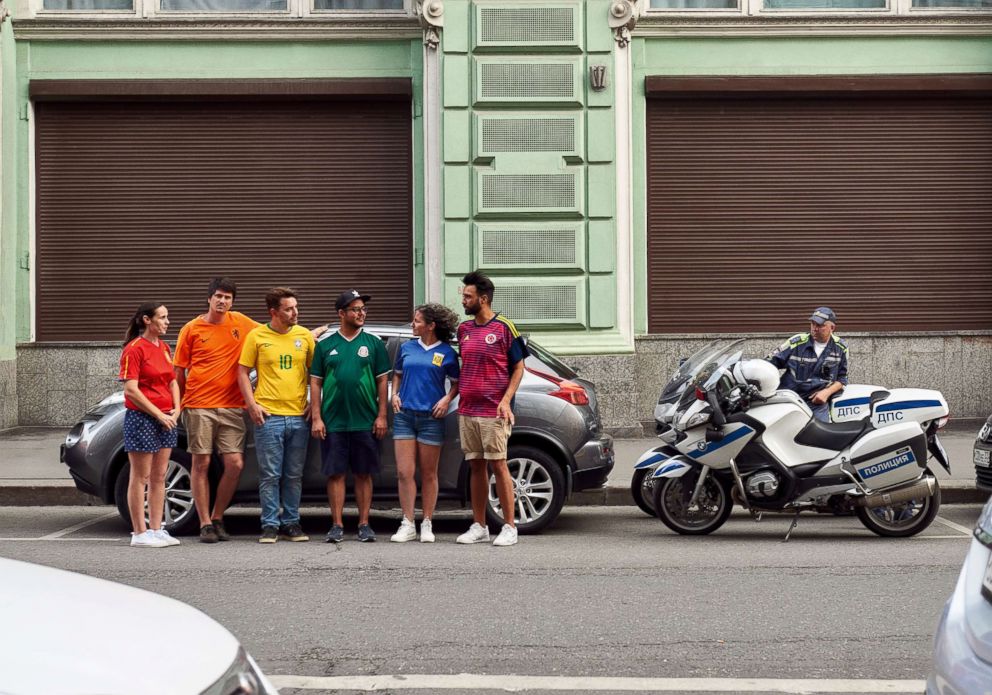
Public displays of affection by gay people in Russia, particularly between men, can frequently attract hostile attention. The point was underlined in 2015, when two men filmed themselves being harassed as they walked around the center of Moscow simply holding hands.
The World Cup has seen the Russian police take a considerably more relaxed approach on Moscow's streets during the tournament, permitting street-drinking and rowdy crowds with flags to flood the area around the Kremlin and generally treating public demonstrations with a lighter touch. There have been few homophobic incidents reported amid the revelry, but FIFA fined Argentina's soccer association $105,000 as punishment for violent behavior and making homophobic chants at their game with Croatia earlier in the tournament.
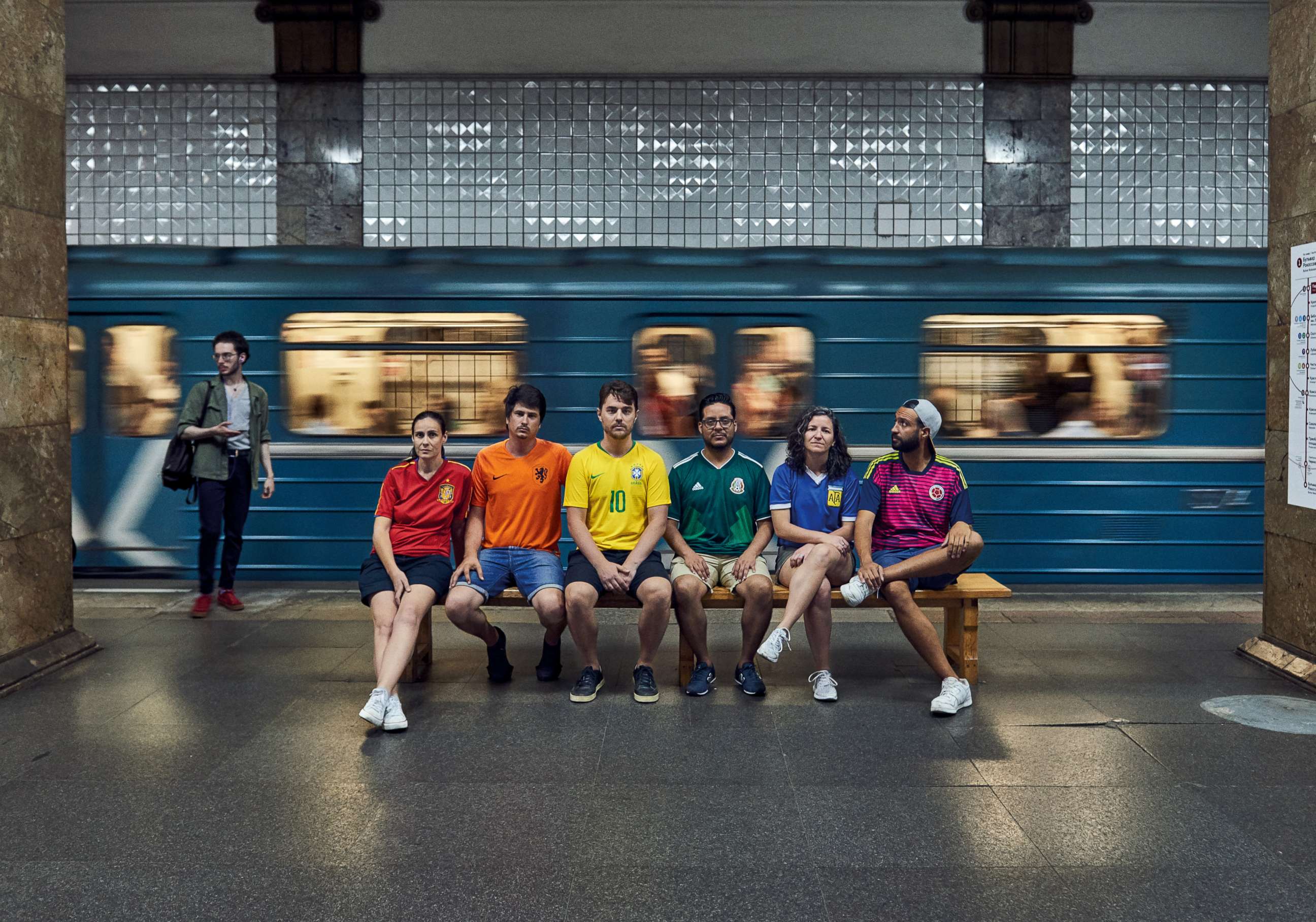
Additionally, British veteran gay activist Peter Tatchell was detained close to the Kremlin early on in the tournament for holding a sign criticizing president Vladimir Putin for failing to hold authorities in the southern Russian republic of Chechnya accountable after they kidnapped and tortured dozens of gay men last year. Tatchell was released without being charged. Two prominent Russian human rights activists were also detained this week after holding signs in Red Square protesting against the detention of Oyub Titiev, the Chechen director of the well-known rights organization, Memorial.




